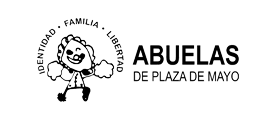02
PROYECTS
- International Human Rights Film Festival - FIDCH
-
The International Human Rights Film Festival -DerHumALC takes place biannually in the city of Buenos Aires and Santiago del Estero. The point is to generate a space for debate and reflection on human rights problems through the artistic representation in documentary format, fiction and animation, content in the realisation of a critical cinema and with a social compromise.
They can participate in official competitions in all the audio visual production that through it original quality and above all its contribution and promotion of human rights fulfils its capacity of communication, social impact and reports necessary convocations and competencies.
Table debates are included in each edition in the discussion forums, seminars master class and reunions between the audience and the authors, the presence of specialists, international and national characters and social organisations with the aim of creating public spaces of participation throughout the Festival.
Furthermore the traditional sections like; Insights into gender, Infancy and Youth, Migrants, Memory, Environment, Native Towns and Panorama, the specialist sections the focus and the windows are changed each year, converted the festival into a dynamic and provocative space where styles clash and where there are proposals that represent the present world and national problems.
Since its beginnings in 1997 the International Human Rights Film Festival - has been developing a sustainable activity in Argentina, Latin America, Europe, The United States, that is aimed at generating, inviting, selecting, and archiving a wide quantity of audio visual materials that deal with the vast problems of Human Rights and the Development of the Environment (more that 5,000 audio visual pieces up until now).
Most of the time, the Festival has happened with the support of international organizations like Save the Children Canada, Hivos, Doen and AECID, Transparency International, among others: governmental organizations like the Secretary of Human Rights of the Nation, the National Memory Archive, the INCAA and INADI; of Governments provinces like those of Santiago de Estero and Tierra y Fuego; as well as many embassy’s, syndicates, universities, radio stations, television channels and cultural centres that promote the films of the Festival in scheduled activities throughout the year. Additionally the Instituto Multimedia DerHumALC-IMD constantly calls together institutions for advice and the development and formation of activities, as well as the divulging and programming of human rights cinema.
As well as the official competition the Festival develops a special section in the audio visual performance about human rights in scholarly contexts and communities. The School Section of the International Human Rights Film Festival has been from its birth a special platform for the visibility of this type of production and it is only in this style in the National Festivals circuit. Many of the activities of this section are carried out in coordination with the Ministry of Education of the Autonomous City of Buenos Aires, with the Provincial Comission for Memory and with the Province of Santiago de Estero.
Actually the International Human Rights Film Festival is the founding partner of the Human Rights Film Network-HRFN, a network that includes more than 35 international human rights film festivals around the world.
Conceptual Proposal
Carrying a theme for the first editions of the Festival is differentiated into three conceptual groups: Memory and dictatorship, social cinema or political intervention and glances of our identity and the environment, putting an emphasis on the films that tackle related themes with the Argentinian genocide perpetrated in the 70s, as well as the social drama of the marginalisation of the masses, without leaving out the international character that defines the Festival.
From 2004, the theme of reconciliation extended its range with the presence of intercontinental film to highlight a multitude of problems that today are planted in the international environment. The traditional sections today try to focus on human rights as an environmental and indigenous theme as much as a social, diversity and gender theme, with the aim of widening the concept to completely conflict the individual with an environment that impedes its free development and expression.
With the turning round of multiple editions of the Festival and the emerging problems that are gradually including other two formats of programming. Windows, those which include a selection of films from other more polished Festivals and that are globally recognised and Focos, which refers to a specific problem of a territory or a social group.
- International Environmental Film Festival - FINCA
-
The late phenomenon with the preoccupation with the environment, the growing development of material cinematography and audio visual cinema with respect to environmental themes and a permanent widening of the environmental section in the International Human Rights Film Festival - has as a result given birth in 2010 to FINCA - the International Environmental Film Festival - FINCA.
The special social and transformative focus of FINCA, is postulated from then as a democratization tool in the environmental debate to other spaces, a differential element of other environmental film festivals in the country.
This project arises with the need to widen the cultural perspectives from a social focus and more towards the environmental problem, through the cinematographic image as a sensibilizing method. The dynamics of each edition allow the audience to appreciate a wide variety of films that stick out within the environmental theme and furthermore participate in spectacles, shows of artistic expression, and debates with the presence of such personalities in the world of cinema such as environmental organisations.
Bringing together a variety of formats and genres, from short films to feature length films, from documentaries to fiction, from animation to reports, the projects that are exhibited are as national as international, they accompany the intention of FINCA to surpass the prejudice towards exclusivity of environmental debate to specialists of the area. It should be noted from here that the sensitiveness around the environment of IMD is not only reduced to the carrying out of FINCA with which the execution would continue of other activities like the collaboration with other shows of environmental cinema and the support of cinematographic material in events for the defence of the land, the wildlife and society.
From this point of view, we trust firmly that FINCA is a space for discussion and generation of public agendas with respect to environmental problems understanding that it is our responsibility as inhabitants of earth to appropriate sustainable practices and to remember the importance of the preservation of biodiversity.
The labour of audio-visual exhibition, formation and divulgence in human rights, specifically within the environmental theme are the main axis in Instituto Multimedia DerHumALC. The International Environmental Film Festival - FINCA Issues – FINCA reaffirms said commitment and extends the possibilities of the fight for environmental causes into non-traditional environments like cinema.
Conceptual Proposals
International Environmental Film Festival Issues – FINCA – proportions new platforms for the construction of networks where knowledge is shared and common strategies are surrounded by good environmental practice, generating and maintaining a space for discussion and reflection about current environmental problems in the national and international discussion. In concordance we bring together filmmakers and specialists as support and to compliment the Festival program.
The shows offer the best selection of films from the most important international festivals on the environment in the world and in turn proposed a traversed look through the 4 themed axis and proposed sections for FINCA: Food sovereignty, Waste and Contamination, Mines and Petrol, Biodiversity and Sustainablility.
It should be noted that in the selection of the cited themes, a profound implication of corruption and impunity between the primary causes of environmental deterioration is taken into account and in this way we celebrate the visible incrementation of cinematographic productions that tackle said themes from this perspective.
- International Environmental and Human Rights Film Festival - FINCADH
-
FINCADH is an IMD-run national and international initiative that aims at disseminating socially-committed films which have been part of the FICDH and FINCA programming, using the same format as these two festivals but in a lower scale, in order to maintain a link with other Argentinian and Latin American cities. These are the places where FINCADH is currently held:
Santiago del Estero
In 2018, the first edition of FINCADH took place in Santiago del Estero, under the auspices of the Presidency of the Cabinet of Ministers and the Office of the Public Defender of Santiago del Estero.
In the specific context of the Santiago del Estero province, where the very first editions of our festivals came to life, the IMD is intent on keeping long-term cooperation and exchange efforts active with government and social entities so as to share experiences and spaces for discussion which contribute to strengthen a form of local expression and remembrance.
Short films resulting from audiovisual training processes as part of several educational community-based programs across the country were screened in high schools, including discussions, presentations and debates. A high number of young adults and adolescents took part in the Schools Section screenings.
Considering the pandemic context, the third edition will be held in hybrid format, with both in-person and online films, featuring national and international directors interacting with audiences via streaming.
Paraguay
In 2016, with the financial support of the Canada Fund for Local Initiatives, the IMD, under the motto “Oñondivé jahechá poravé/together, we see better”, embarks on the organization of the 1st International Environmental and Human Rights Film Festival—FINCADH—in Asunción, Paraguay, moved by the understanding that in the current Paraguayan context, film is an art form that is at the forefront of development as an industry and a social transformation tool, as well as one of the areas where Paraguay is managing to communicate domestic issues at the international level with high quality productions rooted in social activism. Our Festival also turned out to be the main film-related event taking place during the Culture Week hosted by the Government’s National Office for Culture. A high-quality and major socially-committed event, FINCADH Paraguay had its main venue at the Argentine Embassy, in addition to other screening sites in Manzana de la Rivera (Asunción), the Juan de Salazar Spanish Cultural Center and other academic and school venues allowing for a diverse audience to enjoy films that usually do not reach the country.
Amidst the COVID-19 pandemic in 2021, the Festival’s 5th edition was held in online format through our imd-stream.org platform, accessible across the whole Paraguayan territory.
Costa Rica
In 2017, San José Costa Rica hosted the first edition of the FINCADH, the only festival in Central America focusing on denunciation, protest, documentary and fiction cinema around the environment and human rights. For the past four years, it has been produced by a highly-experienced local team. The Festival took its first steps and strengthened Argentine-Costa Rican relations thanks to a partnership between the Argentine Embassy in Costa Rica and IMD, with 3 successful editions in which it got to widen its scope of action, audience and venues, including the Interamerican Court of Justice, which engaged in each edition by providing a place for discussion and screenings, highlighting the importance of these events being held in decision-making spaces. The Costa Rican Film Center in San José also acted as one of the main pillars contributing to the organization of the Festival during the first few years.
The 4th edition was held with the collaboration of the Canadian Embassy in Costa Rica, the Embassy of the Netherlands in Costa Rica, the National Insurance Institute (INS) and the Business Alliance for Development (AED), making the FINCADH the first film festival in Central America to be hosted through a web platform and social media due to the pandemic.
- Social Cinema Forum
-
In June of 2009, on the mark of the 11th edition of the International Human Rights Film Festival, that took place in the city of Buenos Aires the first Social Cinema Forum and Politics. With the aim of promoting a Latin American platform that gave impetus to the realization of works of social cinema, the Forum functioned as a professional networking space between directors, producers, distributors, public and private TV channels, NGO’s, cinema clubs, intellectuals and people from the culture and other festivals dedicated to the exhibition and promotion of alternative audio-visual material.
On the 15th edition of the International Human Rights Film Festival in 2013 IMD (Instituto Multimedia DerHumALC) managed and carried out the first edition of Good Pitch Buenos Aires, formed from the training and presentation of cinematographic projects for the search for financing and support for audio-visual production.
In accordance with the cited history of Instituto Multimedia DerHumALC- IMD constantly manages and develops events, sessions of pitch and forums that promote the circulation and performance of audio-visual pieces that for its potential aesthetic narrative are posed as positive and successful projects in the fight for the defence of human rights through the alliance with current social campaigns.
- Education Program
-
The formative vocation of the Instituto Multimedia DerHumALC –IMD- has been the defence of human rights and the promotion of promised civil culture with the strengthening of democratic culture, which has been reflected through 16 years of activity in diverse projects and activities.
Regular workshops of Cinema and Photography in the Female Complejo Penitentiary n.4 of Ezeiza
As part of the educative activities directed at excluded groups, the execution of regular Cinema and Photography workshops from 2008 throughout a project presented jointly with the inmates from the Female Complejo Penitentiary n.4 of Ezeiza, is included. Said workshop, was completely developed in a voluntary manner on the part of the founders and participants of the workshop, and has allowed for the technical theoretical formation of dozens of recluses that have been able to get closer to audio-visual language like a tool of critical understanding in social reality.
Master of Cinema and Human Rights (Italy - Argentina)
Like a form of establishing links and live exchanges between Italy and Argentina with the hope of finding the profoundness of cinema as a tool for the fights and participation, the University of Pisa organizes with the Instituto Multimedia DerHumALC (IMD) the Master “Filmmaker of Human Rights”. Experience that tries to train students to look out for problems related to the defence of human rights its extension to excluded sectors of society and the contribution of the collective construction of memory through audio-visual language, with the opportunity that would signify to the participants this mark and platform of cultural interaction between nations.
The carrying out of the Master is made through a binational way: the first phase of the theoretical character takes place in the University of Pisa (Italy) and the second of practical and existential character, is developed in the City of Buenos Aires (Argentina), once fulfilled the didactic objectives the participants obtained the title of the “Master of 1ts level, Filmmaker of Human Rights”.
In the education environment, the IMD has also collaborated in the teachings of “Social economy and local development” with the University of Bologna; and in the national environment at the National University of Lanús and National Univeristy of San Martín.
Educating About Human Rights and Environmental Issues Through Film
The IMD promotes agreements with a variety of organization and institutions for the carrying out of specific educational activities, like debates, formation of teaching, formation of functions, formation of students of primary and secondary schools since its founding in 1997.
Specifically the Human Rights Education program through Cinema goes hand in hand with the School Section of the International Human Rights Film Festival in 2010 where short films are exhibited as a result of the audio-visual formation process in the school and directed community context directed especially at young people and children through the internalization of the concept of Human Rights close to its existential and life stories. The program aims for the capacity in carrying out audio-visual and the increased awareness of new generations that belong to different social contexts, about the theme of human rights and proposes the strengthening of the initiative in the community context or the neighbourhoods where one promotes a larger awareness about the violation of human rights, as much individuals as socio economic. It is pointed out that to stimulate in the beneficiaries and critical look at its social environment, finding positive forms of intervention and change through the use of audio-visual tools for the multiplying of knowledge.
Starting in 2016 and with the help of the International Environmental Film Festival (FINCA), the educational projects carried out by the Instituto Multimedia DerHumALC (IMD) also cover environmental issues as part of the Programa Educar en Derechos Humanos a través del Cine (Educating About Human Rights Through Film).
Some of the activities developed inside this project are:
- Formation and introduction workshops of the audio-visual language and human rights themes in secondary schools from the city of Buenos Aires and Santiago del Estero.
- Animation and character workshops close to themes of human rights in the common of the city of Buenos Aires.
- Publications
-
Editing, Translating, and Adapting the Handbook "Cómo organizar un festival de cine con compromiso social" (How to Organize a Film Festival With a Social Commitment, 2016)
Since 1997, the Instituto Multimedia DerHumALC (IMD) has worked to promote films that take on a critical view and drive social change. Over time, the IMD shared many stories of success and shortcomings with the organizers of other festivals that are part of two large international networks: the Green Film Network (GFN) and the Human Rights Film Network (HRFN), as well as with the Argentinian Network of Audiovisual Festivals and Exhibitions (RAFMA). Bearing in mind the needs and challenges of film festivals and socially engaged exhibitions, and with the support of both the HRFN and the Dutch foundation Movies that Matter, the IMD decided to translate and adapt two handbooks created by HRFN members but from a Latin American perspective. The project will also add content and experiences related to the International Environmental Film Festival (FINCA) and the International Human Rights Film Festival (FICDH).
Publishing and Editing the Book "Cine y Derechos Humanos," compiled by Susana Sel. (2006)
The publication of this book, made possible by the support of the National Institute against Discrimination, Xenophobia and Racism (INADI) and sponsored by the Department of Human Rights, dependant on the Ministry of Justice, Security and Human Rights, coincides with the 10th Human Rights Film Festival, a suiting framework to reflect upon the main milestones, stages and topics related to Human Rights featured in Argentine cinema in the last ten years. Among other issues, the book deals with political and individual rights, democratic freedoms, tolerance and respect for minorities, social rights, work, minimum standards of decent living, the rebuilding of solidarity, and the right of peoples to self‑determination, cultural identity, growth and a healthy environment.
- Children and Adolescents Campaign 2019
-
In 2019, the 30th anniversary of the United Nations Convention on the Rights of the Child provided a suitable framework for the 18th International Human Rights Film Festival (FICDH) and the National Campaign for the Rights of Children and Adolescents, two projects supported by the United Nations Children’s Fund (Unicef) in Argentina.
Our country has witnessed an awakening of children and teenagers eager to use audiovisual and art language to express their own desires and concerns, fight for their rights and share spaces of empowerment with their peers that allow for greater self-determination. Film is one of the most effective tools for social transformation, allowing viewers to relate to the characters in a story, which might be alien to our lives and still be given a whole new meaning.
FICDH is one of the only festivals at the regional level that gives children and adolescents a leading role in its production (official motto, young jury, production of the Festival’s official song). Our Festival also carries out decentralised activities, i.e. outside Buenos Aires: in the places where we travel, we hold workshops and screenings in rural schools and vulnerable neighbourhoods, where kids may have never had the opportunity to participate in an activity of this nature.
In 2019, as part of the projects mentioned above, activities such as film screenings followed by discussions, zine-making workshops and mural painting sessions were organized, using film to stimulate discussions and reflections about issues relating to children and adolescents’ rights. The design and planning of these projects is directly informed by the specific needs and interests of the different priority groups.
THE CAMPAIGN IN NUMBERS
- 3000 YOUNG PARTICIPANTS IN OUR SCHOOLS SECTION
- 1500 CHILDREN AND TEENAGE AUDIENCE MEMBERS IN BUENOS AIRES
- 890 CHILDREN AND TEENAGE AUDIENCE MEMBERS IN SANTIAGO DEL ESTERO AND CÓRDOBA
- 90 SHORT FILMS PRODUCED BY HIGHSCHOOL STUDENTS
- 20 SCREENINGS
- 9 SCHOOLS AND ORGANISATIONS IN BUENOS AIRES, CÓRDOBA AND SANTIAGO DEL ESTERO
- Workshop: “Green producing”
-
The Instituto Multimedia DerHumALC, FINCA and Fiction Changing the World have jointly created the Green producing workshop, a sustainable cultural production lab aimed at cultural agents from Argentina, practitioners from the cultural, environmental and sustainability sectors, in which the Sustainable Development Goals that are most relevant for the cultural industry are identified, together with an analysis of actions that can be taken by different sectors in the industry to lower environmental impacts in production, assessing the current situation, as well as the limitations, challenges, advantages and benefits of adopting sustainable measures.
Facilitators:
- Paloma Andrés Urrutia | Psychologist, founder of Fiction Changing the World, Spain’s first audiovisual production company around sustainable development.
- Florencia Santucho | Cultural agent, director of the International Environmental Film Festival [FINCA] and vice president of the Instituto Multimedia DerHumALC [IMD].
- Valeria Massy | Bachelor in Environmental Science (UBA), with a degree in Comprehensive Climate Change Management (UNQ) and in Geopolitics and Defense (UNS). Climate Change advisor for the Buenos Aires Government Environmental Protection Agency.
The online activity spanned four days of participation-based conference calls including lectures, workshops and a mentoring stage to develop or consolidate different types of projects bringing together culture and sustainability, with discussions between facilitators and participants throughout November.
The workshop in numbers:
- 200 ENROLLEES
- 9 FINAL PROJECTS
- +16 WORKSHOP HOURS
- 30 DAYS OF PROJECT FOLLOW-UP






